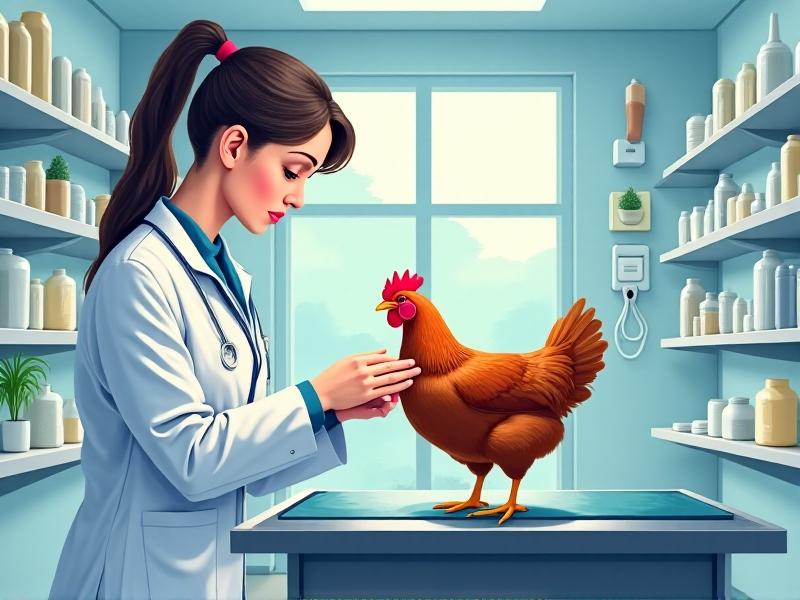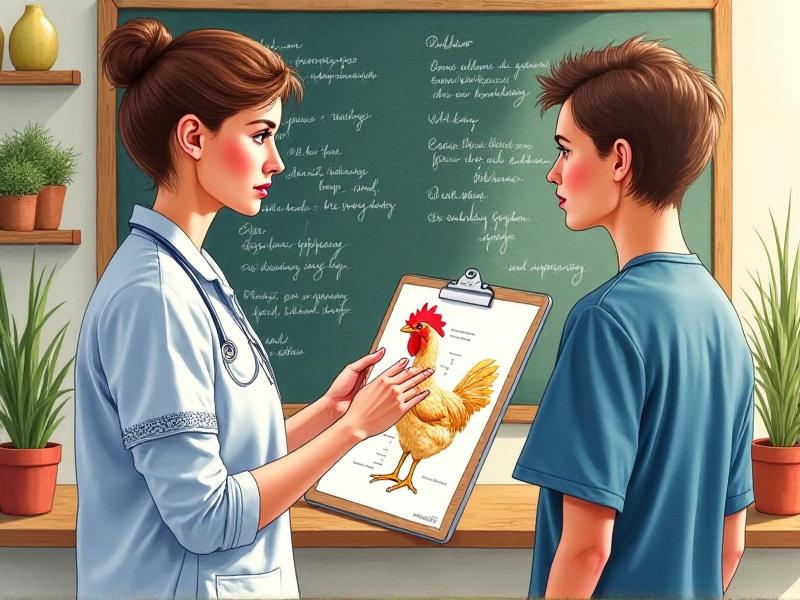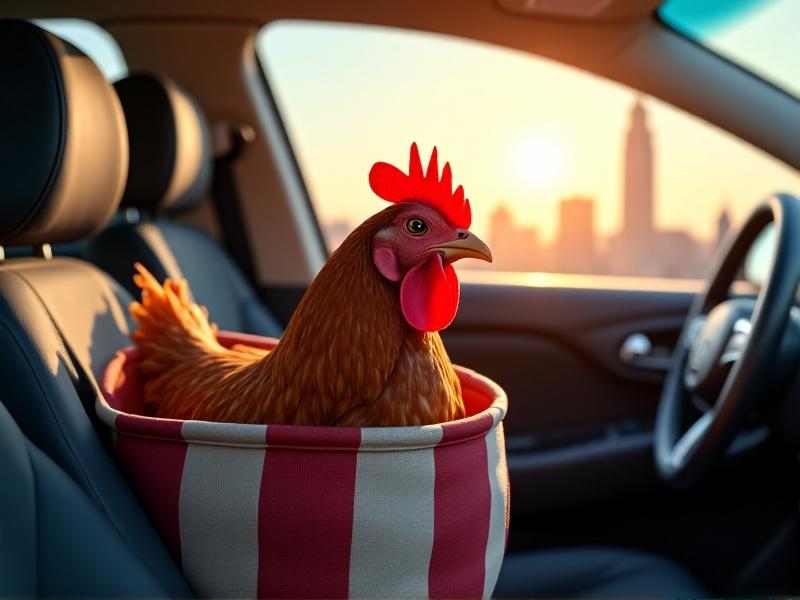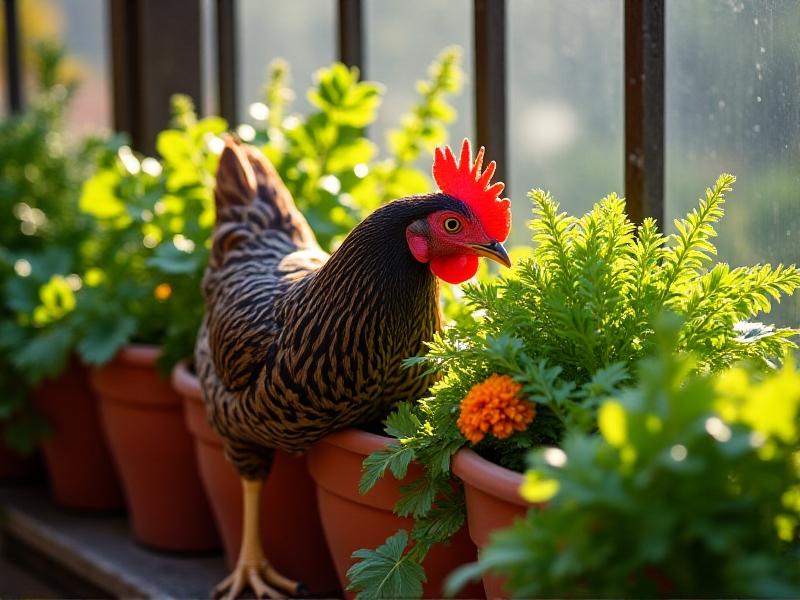Finding a Chicken-Savvy Vet in the City
Finding a Chicken-Savvy Vet in the City: A Urban Poultry Owner’s Guide
Why Urban Chicken Owners Need Specialized Veterinary Care

Raising chickens in the city comes with unique challenges, from limited space to zoning regulations. But one often-overlooked hurdle is accessing veterinary care tailored to poultry. Unlike cats and dogs, chickens have specialized health needs, such as susceptibility to respiratory infections, parasites, and egg-binding. Many urban veterinarians primarily treat companion animals, leaving chicken owners scrambling during emergencies. A vet experienced in avian or poultry medicine can spot subtle signs of illness, recommend appropriate treatments, and advise on preventive care—crucial for maintaining a thriving urban flock.
The Hidden Challenges of Locating a Poultry Vet in Metropolitan Areas

Finding a chicken-friendly vet in cities often feels like searching for a needle in a haystack. Limited awareness of urban poultry trends means many clinics don’t advertise avian services. Even when vets have relevant credentials, their availability may be restricted to certain days or require lengthy travel across congested cityscapes. Cost is another barrier: poultry consultations sometimes carry higher fees due to their niche nature. Additionally, emergency clinics rarely accept chickens, forcing owners to rely on daytime appointments—a risky gap if a hen falls ill after hours.
How to Identify a Vet Who Understands Chicken Health

Start by narrowing your search to veterinarians with certifications in avian medicine or memberships in organizations like the Association of Avian Veterinarians (AAV). Call clinics to ask direct questions: Do they treat chickens regularly? Can they perform fecal exams or surgery on birds? Online reviews and local urban farming groups on social media are goldmines for recommendations. For example, a vet in Brooklyn might be renowned for helping rooftop flocks, while one in Portland could specialize in backyard hen nutrition. Don’t hesitate to request a brief meet-and-greet to assess their knowledge of poultry-specific issues like Marek’s disease or bumblefoot.
Questions to Ask Before Booking Your First Appointment
Prepare a list of essentials: Can the vet perform necropsies to determine cause of death? Do they stock medications safe for laying hens? Ask about their approach to antibiotics, as overuse can harm poultry. Inquire if they collaborate with avian specialists for complex cases. Practical logistics matter too: Is the clinic accessible by public transport if you don’t own a car? Do they offer payment plans? A standout vet will proactively discuss vaccination schedules for urban flocks and provide handouts on seasonal health risks, like heatstroke prevention in summer.
Preparing Your Chicken for a Stress-Free Vet Visit

Transporting chickens requires thoughtful prep. Use a well-ventilated carrier lined with absorbent bedding, avoiding wire cages that can damage feathers. Cover the carrier with a breathable cloth to reduce visual stress. Bring a fresh stool sample for parasite testing and note any symptoms, like changes in appetite or egg production. Some vets appreciate video footage of abnormal behavior. Pack a “go bag” with your hen’s favorite treats, a towel for handling, and a copy of her health history. If multiple birds are ill, transport them separately to avoid cross-contamination.
Alternatives When No Local Chicken Vet Exists
In vet deserts, telemedicine platforms like Vetster connect owners with poultry specialists for virtual consultations. While they can’t replace hands-on exams, these vets can guide you through administering fluids or wound care. University veterinary extensions, such as UC Davis or Cornell, often offer low-cost diagnostic services via mailed-in samples. Partner with experienced chicken keepers in online forums to crowdsource advice—though always verify suggestions against reputable sources like the Merck Veterinary Manual. Local feed stores might also host pop-up vaccination clinics.
Building a Support Network for Urban Chicken Health
Join groups like Urban Chickens Network or attend workshops at botanical gardens to swap vet recommendations. Create a neighborhood coop coalition to pool resources—maybe chip in for a group vet visit. Apps like Nextdoor or Facebook Marketplace often have hidden gems, like retired farm vets willing to consult. Document and share your experiences: A Google Map of chicken-friendly clinics crowdsourced by your network becomes an invaluable resource. Remember, even experienced vets appreciate owners who arrive informed about their flock’s baseline health.
Case Studies: Success Stories of City Hens Saved by the Right Vet
Take Mabel, a Leghorn in Chicago who stopped eating due to impacted crop. Her owner found a vet through a rooftop farmers’ meetup, leading to a same-day surgery that saved Mabel’s life. In Austin, a mobile avian vet diagnosed a flock’s mysterious weight loss as rat poison exposure from a neighboring lot, prompting preventive measures. These stories highlight how persistence in vet hunting pays off. Documenting such cases in community newsletters or blogs helps others recognize symptoms early and reinforces the value of specialized care.








